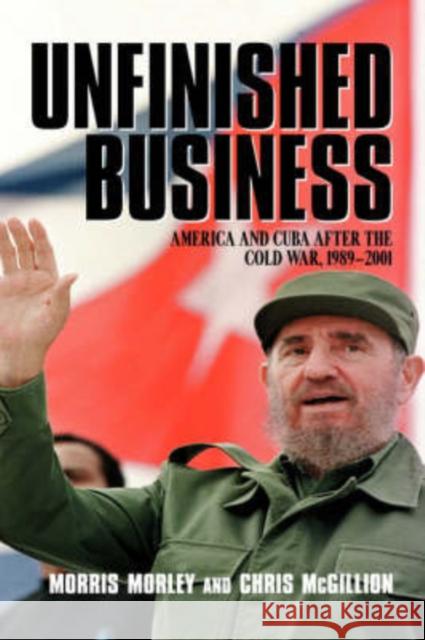Unfinished Business: America and Cuba After the Cold War, 1989-2001 » książka
Unfinished Business: America and Cuba After the Cold War, 1989-2001
ISBN-13: 9780521817165 / Angielski / Twarda / 2002 / 264 str.
Unfinished Business: America and Cuba After the Cold War, 1989-2001
ISBN-13: 9780521817165 / Angielski / Twarda / 2002 / 264 str.
(netto: 403,71 VAT: 5%)
Najniższa cena z 30 dni: 382,84
ok. 22 dni roboczych.
Darmowa dostawa!
In this first comprehensive study of U.S. policy toward Cuba in the post-Cold War era, Morris Morley and Chris McGillion draw on interviews with Bush and Clinton policymakers, congressional participants in the policy debate, and leaders of the anti-sanctions business community to argue that Bush and Clinton operated within the same Cold War framework that shaped the Cuba policy of their predecessors. They also demonstrate that U.S. policy after 1989 was driven principally by domestic imperatives. The result was the pursuit of a policy that had nothing to do with its stated objectives of promoting reforms in Cuba and everything to do with dismantling Castro's regime. This study also addresses the international consequences: the extraterritorial applications of national laws to America's allies; and a willingness to put in danger the operations of the global free trade regime. Few issues more starkly revealed the degree to which U.S. policymakers exhibited a striking lack of realism about America's capacity to impose its will globally. Morris Morley has taught at SUNY-Binghamton and American Unversity. He is the author of Imperial State and Revolution (Cambridge, 1987) and Washington, Somoza and the Sandanistas (Cambridge, 1994) He is a senior research fellow with the Council on Hemispheric Affairs. Chris McGillion has taught at the Universities of Sydney and New South Wales, and Macquarie University. He is a former editorial page editor of the Sydney Morning Herald and has written for the Political Science Quarterly. As a journalist, he has made several trips to Cuba.











